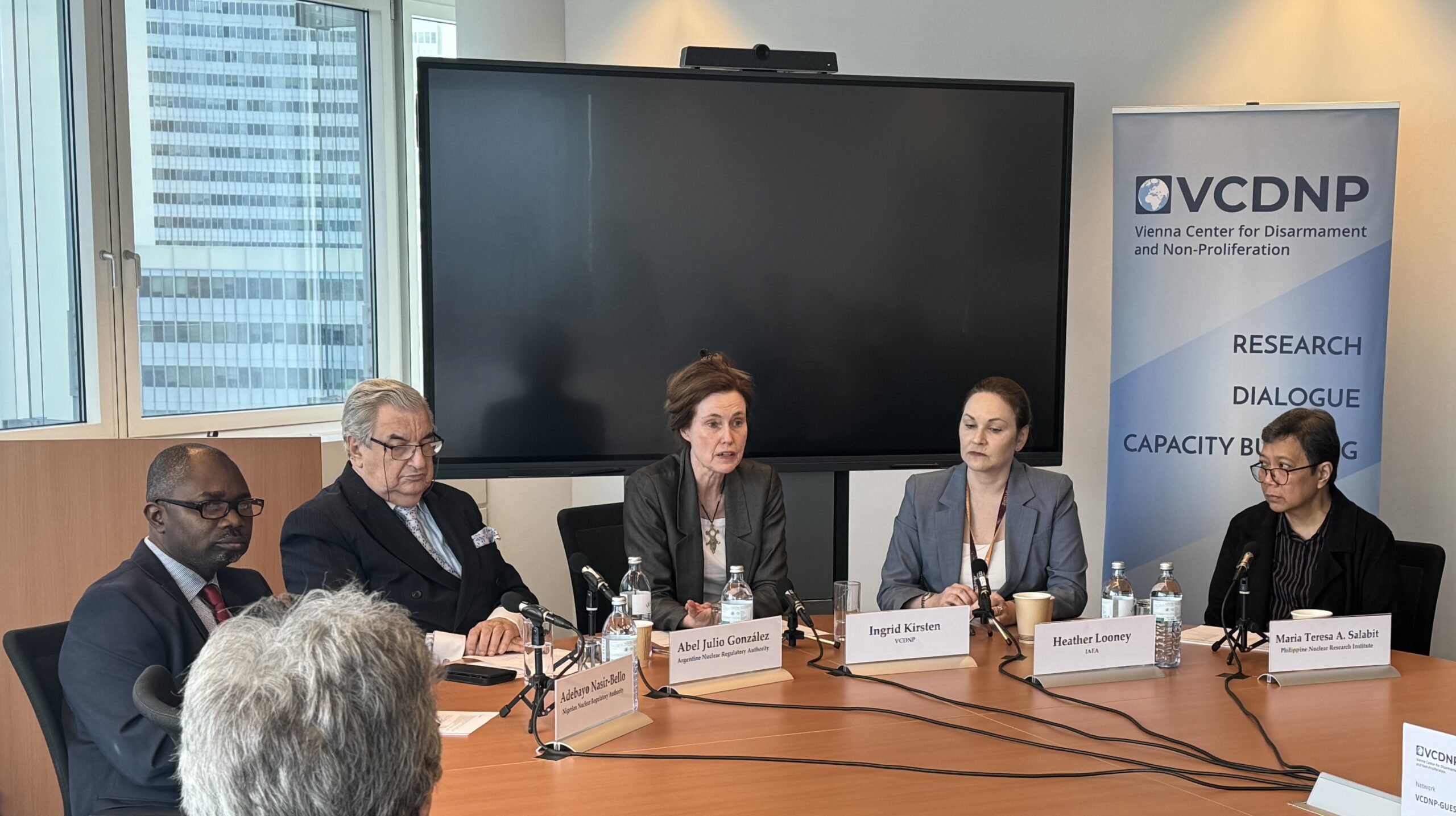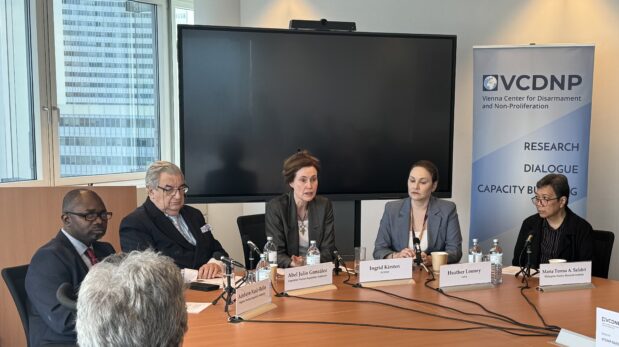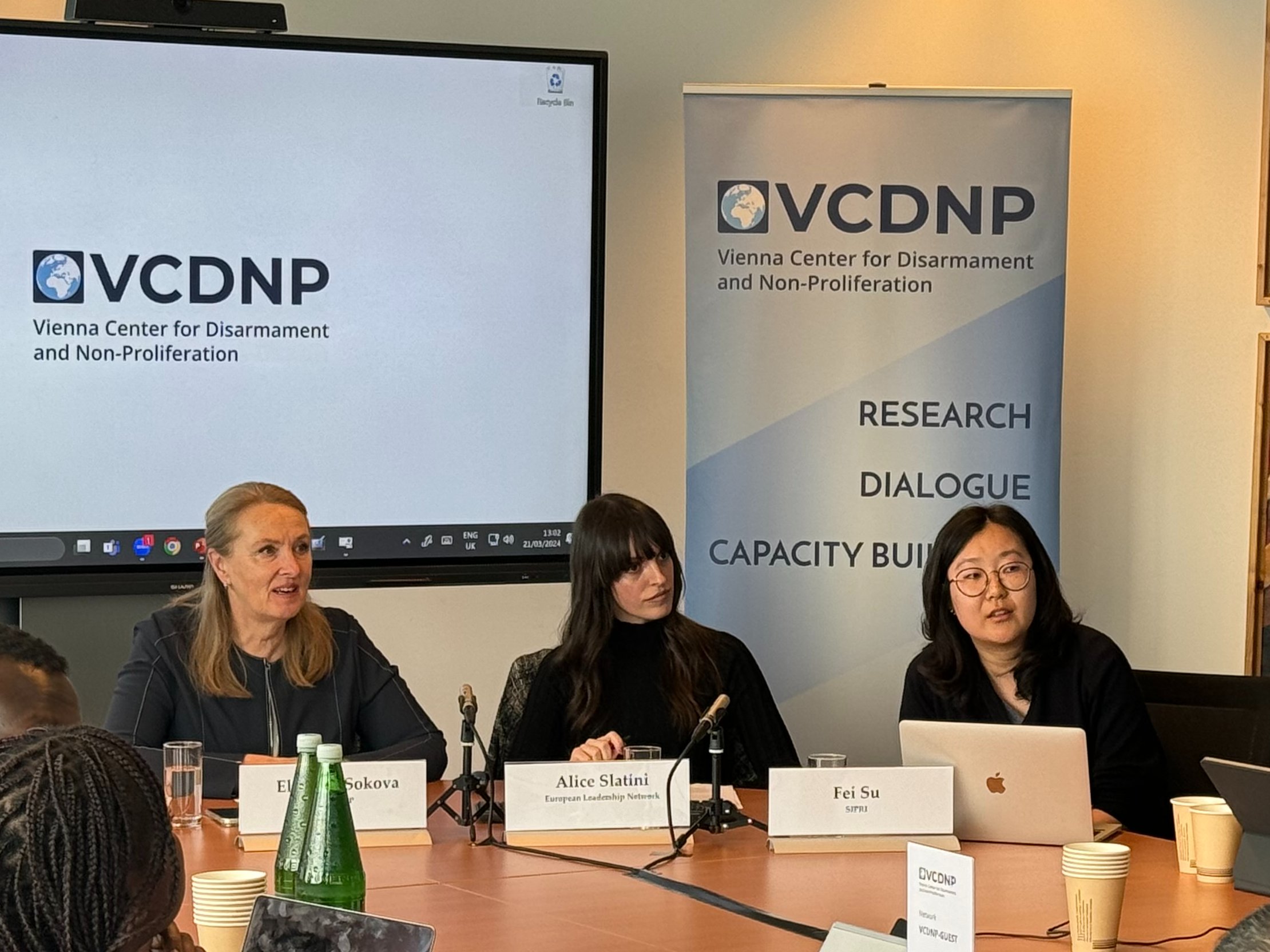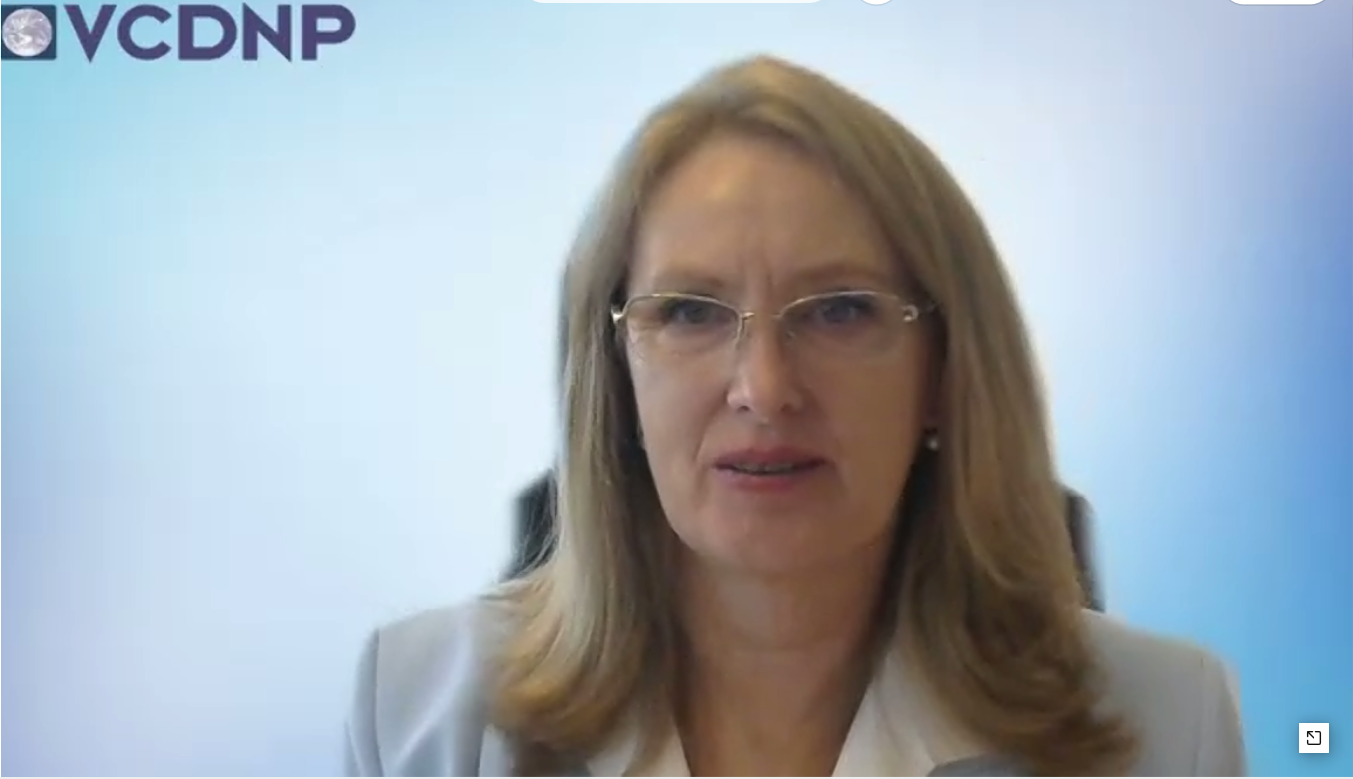
On 14 March 2024, the VCDNP hosted a hybrid panel to discuss the Code of Conduct on the Safety and Security of Radioactive Sources and its supplementary Guidance in the context of access to and expansion of the peaceful uses of nuclear science and technology. In addition to highlighting the benefits, the panellists shared their experiences on implementation and discussed the universalisation of the Code of Conduct.

Abel Julio González explained how learning from the radiological accident in Goiânia, Brazil in September 1987 was key to the establishment of the Code of Conduct. The catastrophic consequences—four deaths, severe contamination of several hundred individuals and property, monitoring of over 100,000 people, and hundreds of people evacuated—brought to the fore the importance of securing radioactive sources. Up to this point international safety standards took security of radioactive sources for granted.
In the years that followed, steps were taken to address this gap. Many States supported the idea of an international legally binding undertaking to ensure the safety and security of sources while others were of the view that it would be too ambitious. The discussions resulted in the proposal for a “politically binding” Code of Conduct. The terror attacks in the United States on 11 September 2001 accelerated these discussions. Following the 2003 International Conference on Security of Radioactive Sources—the outcome of which was supported by the G8 Summit in June 2003—the IAEA Board of Governors approved the Code of Conduct on 8 September 2003.
Mr. González emphasised that the central tenet of the Code is that States should always maintain control of radioactive sources. Although it is legally not binding, as of today more than 140 States have expressed their political support for implementing the Code’s provisions.
Maria Teresa A. Salabit elaborated on the domestic benefits from the Philippines’ political commitment to the Code of Conduct. The Philippine Nuclear Research Institute (PNRI) has a dual mandate to promote and regulate the safe and peaceful uses of nuclear science and technology in the country. Its focus has been on implementing and maintaining the safety and security of radioactive material, including import and export practices and the management of disused sources. Among its responsibilities the PNRI provides licences, conducts inspections, and maintains an inventory of licensed radioactive materials and associated equipment. More than 40% of Philippines radioactive sources are category 4 and 5 sources.
The guidance in the Code of Conduct has informed the development of Philippines regulatory activities and has been incorporated into legislation. PNRI works to ensure that stakeholders—including licensees and high-level government officials—are aware of these guidelines.
Regulatory challenges include:
Ms. Salabit explained that the benefits of implementing the provisions of the Code of Conduct outweigh the challenges. She said that it assists in providing valuable guidelines to protect the safety of people and the environment from harmful effects of ionising radiation and ensuring the security of radioactive material..
Heather Looney discussed how the IAEA supports countries in the implementation of the Code of Conduct. She emphasised that radioactive sources are vital to the achievement of sustainable development goals through their contribution, for example in medicine, industry, research, and education. The safety and security of radioactive sources impacts all Member States. There are over 15 million transshipments of radioactive sources globally each year. More than half of the reported incidents of loss, theft, or trafficking of nuclear or radioactive materials to the IAEA’s voluntary Incident and Trafficking Database (ITDB) information system involves radioactive sources. This demonstrates the magnitude of the safety and security concern and the importance of the Code of Conduct.
To support the implementation of provisions in the Code, the IAEA developed supplementary Guidance on the import and export of radioactive materials in 2004. In 2017, the IAEA published further Guidance on the management of disused sealed radioactive sources. In addition to capacity building workshops and expert and peer review missions for Member States on the implementation of the provisions of the Code, the IAEA recently launched the Regulatory Authority Information System (RAIS+) software application. It helps countries establish and maintain a national registry of radioactive sources and manage regulatory processes, for example licensing the use of radioactive sources and licensing their import and export.
Adebayo Nasir-Bello discussed Nigeria’s experience with the Code of Conduct. Nigeria has benefited from implementing the Code of Conduct because it addresses safety and security considerations together. Another benefit is that the Code provides guidance across the entire lifecycle of a radioactive source. The Code also provides guidance on sources that are not currently under regulatory control and may be in an unsafe or unsecured condition, for example orphan sources. Including provisions in national legislation and regulations for the reuse or recycling of sources is an important aspect that is also addressed in the Code.
Nigeria expressed its political commitment to follow the provisions of the Code of Conduct in 2012. Mr. Bello explained that operators’ awareness of their responsibilities regarding the Code of Conduct has been vital in ensuring safety and security of these sources. Another benefit of the Code is that it encourages dialogue between national stakeholders and fosters international cooperation. For example, Nigeria has implemented a participatory compliance engagement process: when a licensee has a deficiency in complying with a part of the regulations, there is an engagement with the licensee to better understand the situation and ensure awareness of the role of the regulator and the role of the licensee.
During the question-and-answer session, participants discussed the relationship between nuclear security and peaceful uses. Concerned with poverty, food insecurity and disease, many developing countries perceive nuclear security as an additional burden and as competing for scarce resources within the IAEA’s technical cooperation activities. Increased security measures and regulations, a lack of harmonisation of regulations between countries and anxiety over the risk posed by radioactive material resulted in denials and delays of shipments. This contributed to developing countries’ concerns that nuclear security hampers access to radioactive sources. The view was also expressed that linking nuclear security with the prevention of terrorism in the aftermath of the 11 September 2001 attacks changed the focus from improving nuclear security to combating terrorism.
Participants agreed that more effort should be made to address the difficulties in the shipment of sources, including through the harmonisation of regulations. Given the relative success of this Code of Conduct, an additional Code of Conduct on the facilitation of transport of radioactive sources was suggested. Participants also emphasised the importance of applying a graded approach to security that considers what is necessary and appropriate in a specific State, especially those with little or no nuclear activities.
The discussion continued with thoughts on what can be done to universalise the Code of Conduct. Participants emphasised the importance of raising awareness among legislators and other policymakers of the benefits of nuclear technologies and how the implementation of the provisions of the Code of Conduct supports their long-term use in a safe and secure manner. Participants noted that civil society has an important role in this regard.

